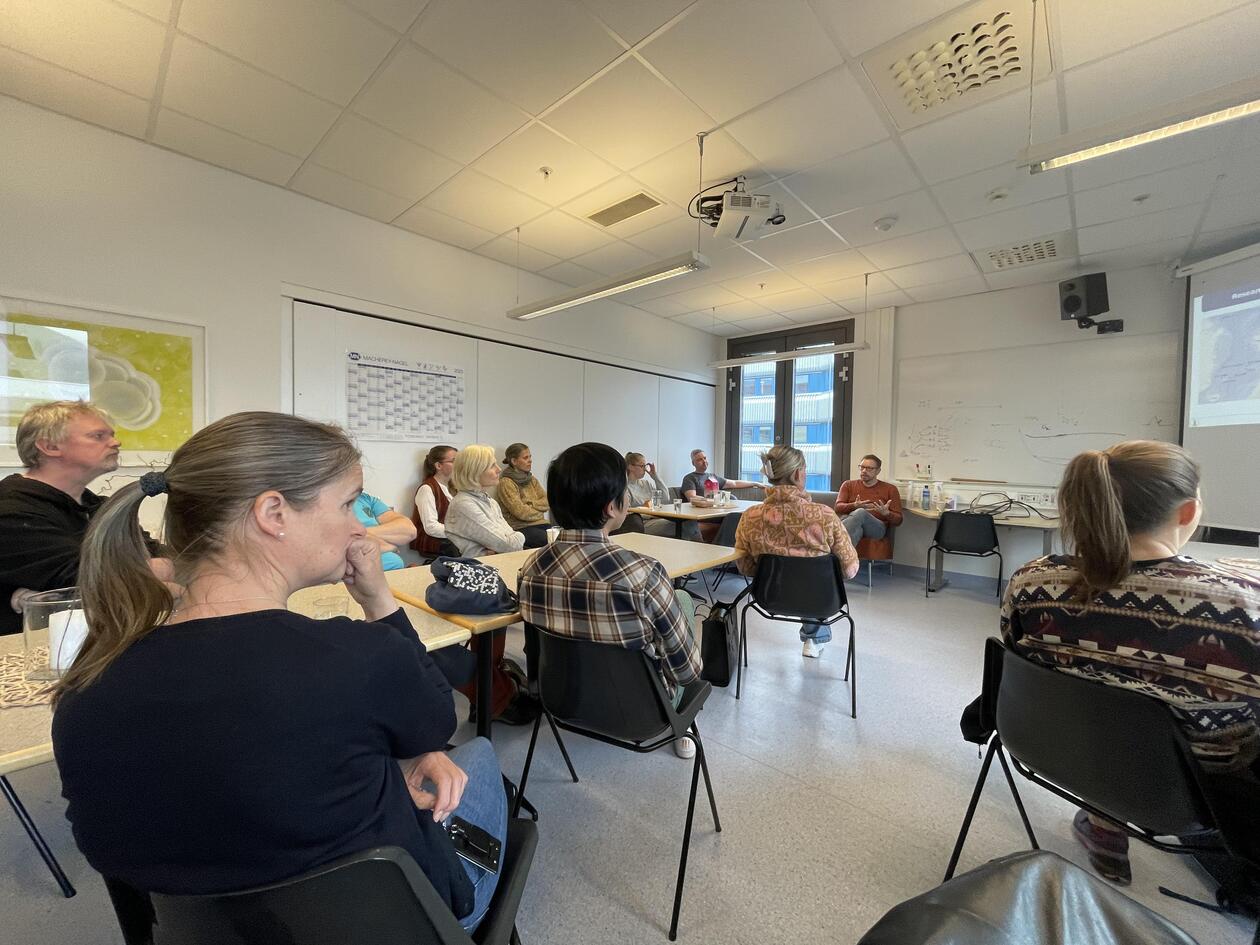Plastic lunch seminar series with an interdisciplinary approach
The Plastics Network (UIB) has launched a plastic lunch seminar series to promote sharing of knowledge on plastics from different scientific perspectives.

Main content
The first lunch seminar took place on 27th April where Dr Farhan R. Khan, who is a Senior Researcher (Climate and Environment) at NORCE, gave a presentation about the environmental presence and toxicological effects of microplastic pollution. He discussed how plastic and microplastic pollution represent a multi-faceted environmental crisis as evidenced by the ongoing negotiations of a Global Plastics Treaty. The research area is rapidly expanding with more questions being posed as researchers find out more about the environmental presence, fate, and adverse effects of plastics. Novel polymer particles, including bioplastics, tire wear particles, nanoplastics, paint fragments, and cigarette butts have come more into focus. In addition, plastics are added 1000s of different chemicals at the manufacturing stage that can potentially leach to the environment and accumulate in organisms and food webs. The timeliness of global action and the complexity of plastics as a pollutant make this research topic one of the most important and fast-moving of our time.
Farhan's research looks at many aspects of microplastic/plastic pollution from the environmental presence, toxicological and physiological effects on aquatic species, regulatory perspectives, and societal impacts, including citizen science projects. Over the last decade, a key ambition of his research focus has been to fill knowledge gaps, for instance, by looking for plastics in otherwise unsampled locations (e.g., Africa Great Lakes, River Nile), novel investigations into the microplastic vector-effect, or the impact of new particles. In addition to discussing these highlights, in his talk, he mused on the upcoming knowledge gaps for plastic research.
The second lunch seminar was organized on 11th May where Runar Stokke, who is a researcher at the Department of Biological Sciences (UiB) and the Centre for Deep Sea Research, presented his research on microbes from the Arctic deep ocean, as a potential resource for plastic biodegradation. He emphasized that the plastic input into the ocean is stated to be 19 – 23 million tons every year with a suggested persistence of hundreds of years and fragmentation rates as low as 1 – 5 % per year. Hence, there is an urgent need to find solutions to reduce this detrimental pollution of the marine system. His research is focusing on the fascinating and inaccessible deep-sea hydrothermal vent systems along the Arctic Mid-Ocean Ridges. Since hydrothermal vents are often characterized by steep physical gradients and contain a variety of pH, nutrient, and temperature regimes over relatively small scales, they are especially suitable to study diverse microbial communities and adaptations of the microorganisms to their particular niches. Hence, these deep-sea environments constitute Earth’s natural bioreactor and highly valuable habitat for biotechnological exploration and the discovery of novel microorganisms. In their research group, they are using deep-sea hydrothermal in situ incubations to explore the enzymatic machinery for the biodegradation of complex polymeric substrates. Plastic polymers are extremely resistant to biodegradation due to their long-chain polymer structure, hydrophobicity, and crystallinity. Despite that, large numbers of microbes have already been reported to degrade different types of plastic, like polyethylene terephthalate or polyurethane. In his presentation, he showed some of the recent cultivation and genome-centric metagenomics analysis showing promising results to discover bacteria that contain enzymes capable of degrading complex plastic substrates.
Both seminars had a great interest and assured the organizers that there is a need for more events where people can hear and learn more about plastic from different angles. As a result the first two lunch seminars will be followed by a monthly-basis plastic lunch seminar series in the autumn semester.

